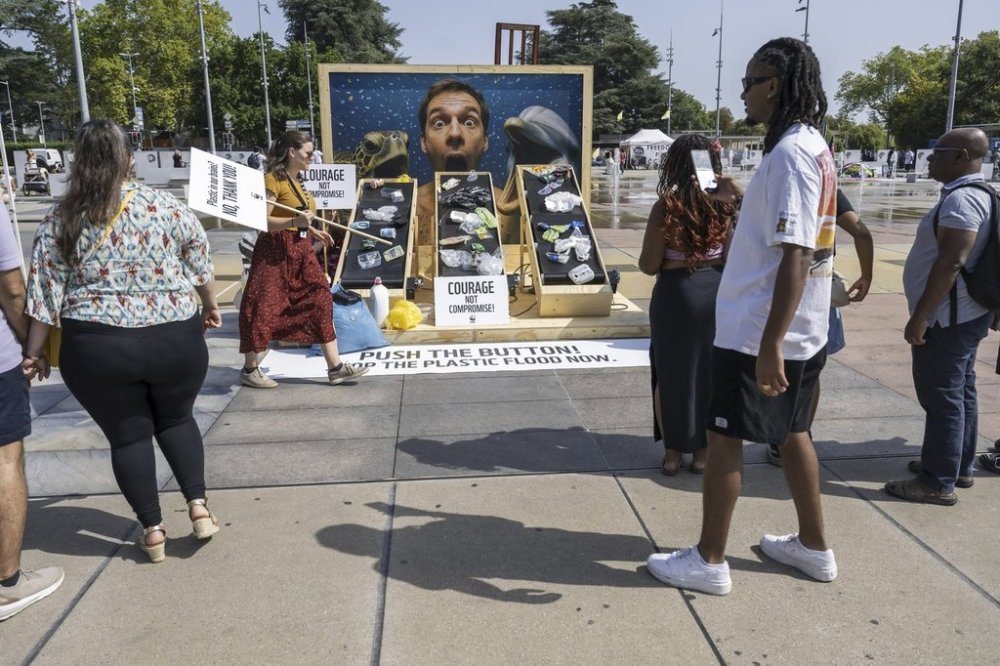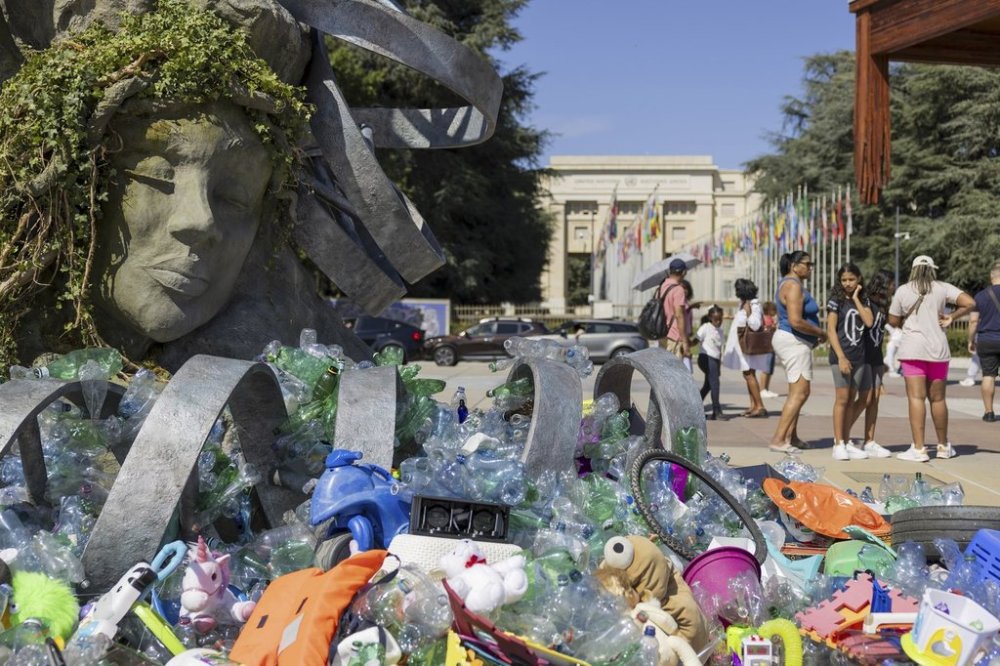New draft of global plastic pollution treaty wouldn’t limit plastic production
Advertisement
Read this article for free:
or
Already have an account? Log in here »
To continue reading, please subscribe:
Monthly Digital Subscription
$0 for the first 4 weeks*
- Enjoy unlimited reading on winnipegfreepress.com
- Read the E-Edition, our digital replica newspaper
- Access News Break, our award-winning app
- Play interactive puzzles
*No charge for 4 weeks then price increases to the regular rate of $19.00 plus GST every four weeks. Offer available to new and qualified returning subscribers only. Cancel any time.
Monthly Digital Subscription
$4.75/week*
- Enjoy unlimited reading on winnipegfreepress.com
- Read the E-Edition, our digital replica newspaper
- Access News Break, our award-winning app
- Play interactive puzzles
*Billed as $19 plus GST every four weeks. Cancel any time.
To continue reading, please subscribe:
Add Free Press access to your Brandon Sun subscription for only an additional
$1 for the first 4 weeks*
*Your next subscription payment will increase by $1.00 and you will be charged $16.99 plus GST for four weeks. After four weeks, your payment will increase to $23.99 plus GST every four weeks.
Read unlimited articles for free today:
or
Already have an account? Log in here »
GENEVA (AP) — Negotiators working on a treaty to address global plastic pollution discussed a new draft of the text Wednesday that wouldn’t limit plastic production or address chemicals used in plastic products.
The biggest issue of the talks has been whether the treaty should impose caps on producing new plastic or focus instead on things like better design, recycling and reuse. About 100 countries want to limit production as well as tackle cleanup and recycling. Many have said it’s essential to address toxic chemicals.
Powerful oil and gas-producing nations and the plastics industry oppose production limits. They want a treaty focused on better waste management and reuse.

Countries with very divergent views expressed disappointment with the draft. It could change significantly and a new version is expected Thursday, the last scheduled day of the negotiations.
When they convened Wednesday night, Colombia’s delegation said that the text was entirely unacceptable, because it was unbalanced, and lacked the ambition and global obligations needed to end plastic pollution. The delegation said that it wouldn’t accept the wording as the basis for negotiations.
The head of Panama’s delegation to the talks, Juan Carlos Monterrey Gómez, stood up and cheered. Many delegations made statements to agree, including Mexico, Chile, Ghana, Canada, Norway, the United Kingdom, the European Union and the group of small island developing states.
“Let me be clear — this is not acceptable for future generations,” said Erin Silsbe, representing Canada.
Oil- and gas-producing nations raised other concerns, with Saudi Arabia, Kuwait, Qatar and others saying that the draft doesn’t have the scope they want to set the parameters of the treaty or precise definitions.
The United States said that six articles cross red lines, but didn’t say how.
India’s delegation, on the other hand, said that the draft is a “good enough starting point.”
The draft contains one mention of plastic production in the preamble, reaffirming the importance of promoting sustainable production and consumption of plastics. It doesn’t contain an article on production from a previous draft. There is no mention of chemicals.

The new provisions seek to reduce the number of problematic plastic products that often enter the environment and are difficult to recycle and promote the redesign of plastic products, so that they can be recycled and reused. Parties to the treaty would improve their waste management.
Luis Vayas Valdivieso, the chair of the negotiating committee, wrote the draft based on the views expressed by nations over the course of the negotiations. He told them that he did it to move them closer to a legally-binding instrument, and they can shape and improve it, as well as add and delete wording.
With little time left, he said, it’s time to build bridges, not dig in over red lines.
___
The Associated Press’ climate and environmental coverage receives financial support from multiple private foundations. AP is solely responsible for all content. Find AP’s standards for working with philanthropies, a list of supporters and funded coverage areas at AP.org.

